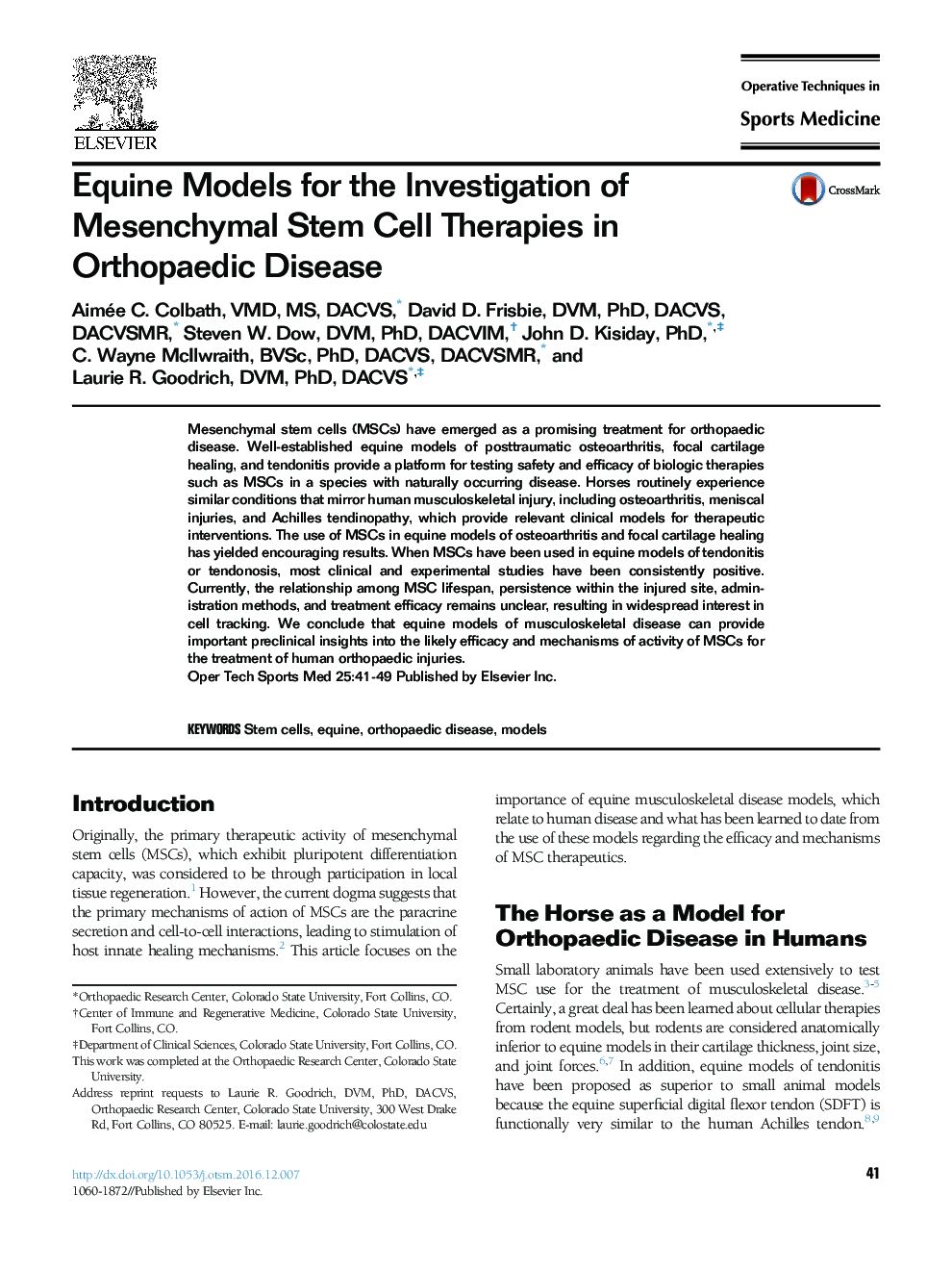| Article ID | Journal | Published Year | Pages | File Type |
|---|---|---|---|---|
| 5710984 | Operative Techniques in Sports Medicine | 2017 | 9 Pages |
Mesenchymal stem cells (MSCs) have emerged as a promising treatment for orthopaedic disease. Well-established equine models of posttraumatic osteoarthritis, focal cartilage healing, and tendonitis provide a platform for testing safety and efficacy of biologic therapies such as MSCs in a species with naturally occurring disease. Horses routinely experience similar conditions that mirror human musculoskeletal injury, including osteoarthritis, meniscal injuries, and Achilles tendinopathy, which provide relevant clinical models for therapeutic interventions. The use of MSCs in equine models of osteoarthritis and focal cartilage healing has yielded encouraging results. When MSCs have been used in equine models of tendonitis or tendonosis, most clinical and experimental studies have been consistently positive. Currently, the relationship among MSC lifespan, persistence within the injured site, administration methods, and treatment efficacy remains unclear, resulting in widespread interest in cell tracking. We conclude that equine models of musculoskeletal disease can provide important preclinical insights into the likely efficacy and mechanisms of activity of MSCs for the treatment of human orthopaedic injuries.
